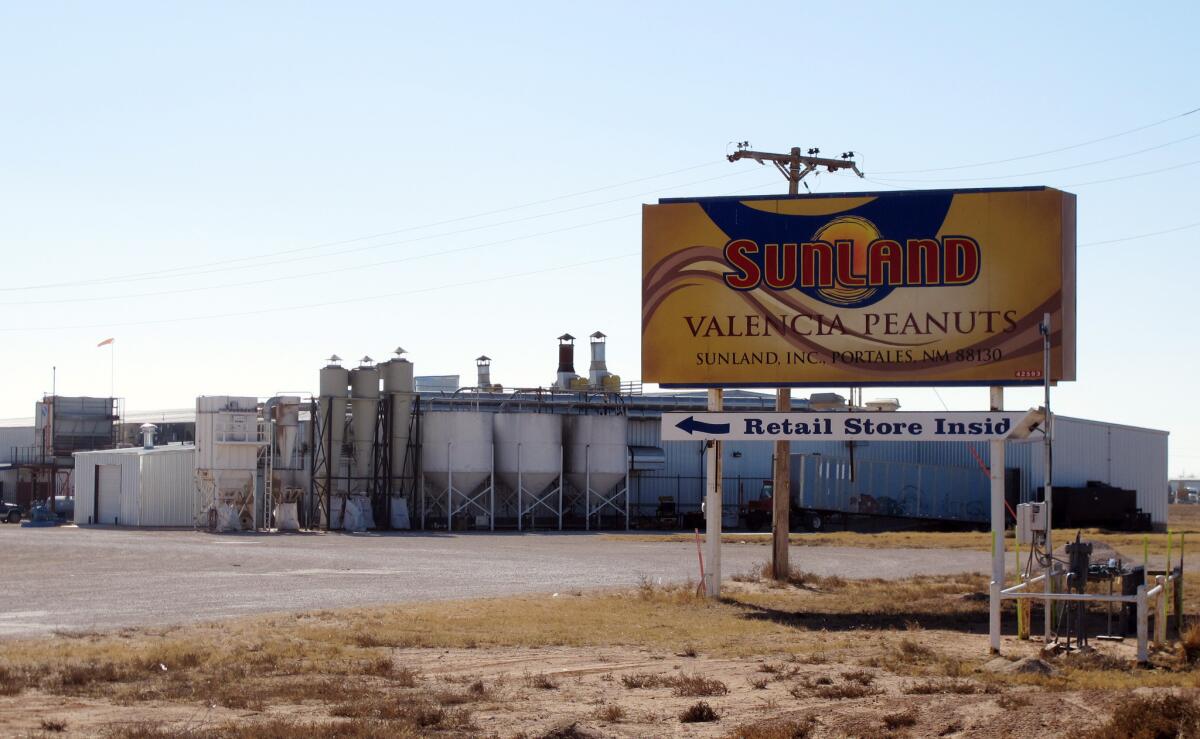Safe peanut butter, and beyond

The bins of peanuts outside were uncovered, food safety inspectors reported, allowing birds to do on them what birds do. Employees failed to wash their hands regularly or to practice other basic hygiene. Salmonella was found in dozens of locations throughout the plant, which had shipped jars of peanut butter even though its own tests showed they were tainted with the potentially deadly bacteria. After more than 40 people were sickened, the plant closed voluntarily in September and the company’s products were recalled. And yet Sunland Inc. announced plans to reopen the New Mexico facility, which sold organic peanut butter to Trader Joe’s and other markets.
Citing the conditions at Sunland as well as its history of health violations, the U.S. Food and Drug Administration put at least a temporary hold on those plans Monday, suspending operations at the plant and exercising for the first time its new authority to shut down potentially dangerous food facilities. Luckily for consumers, this was made possible by the Food Safety Modernization Act, signed into law nearly two years ago — and long overdue even then. But other, much more sweeping changes required by the law haven’t yet been implemented.
The law doesn’t simply expand the FDA’s authority; it calls for an overhaul of food safety enforcement that relies more on prevention than on punishment of errant food producers. Foreign companies, whose products make up an ever-larger share of domestic food consumption, will be required to show that their plants meet U.S. standards, and the FDA will form partnerships with food safety agencies in those countries to bolster its global inspection reach. Domestic food businesses will be required to develop their own science-based safety programs, subject to FDA approval, and inspections will be stepped up at plants that handle foods deemed to be at higher risk for food poisoning, such as leafy greens or salads containing mayonnaise.
Provisional regulations were supposed to be released a year after the law was signed — in January — but that hasn’t happened. The FDA did its job, delivering the new regulations to the Office of Management and Budget in late 2011. But the OMB hasn’t moved them forward. Some theorize that this was a political decision by the Obama administration, to avoid implementing sweeping regulations during a campaign marked by Republican complaints of over-regulation (though the bill passed Congress with significant Republican support).
The FDA’s decisive move to keep the Sunland plant from reopening shows how necessary the new law was. Surely one of the most important regulatory missions of government should be assuring the safety of what we eat. Implementation of the rest of the law is past due.
More to Read
A cure for the common opinion
Get thought-provoking perspectives with our weekly newsletter.
You may occasionally receive promotional content from the Los Angeles Times.










